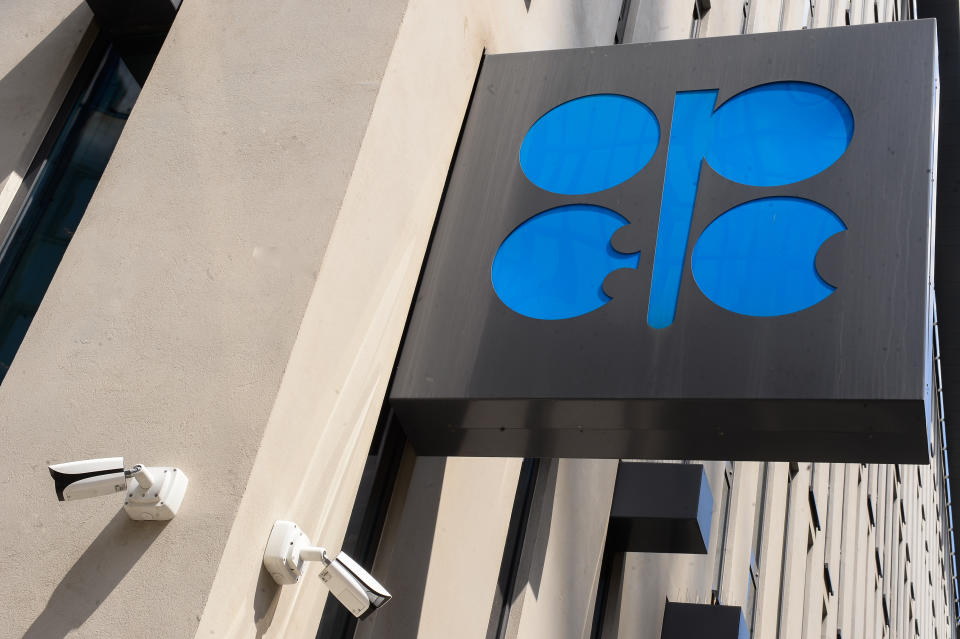Oil prices rise ahead of OPEC meeting to discuss coronavirus

Representatives from top oil producing nations are set to meet in Vienna on Tuesday to discuss the outbreak of the deadly coronavirus in China.
The Organisation of the Petroleum Exporting Countries, OPEC, will hold an emergency meeting of its technical committee on 4 and 5 February to discuss coronavirus and its impact on oil prices, according to multiple reports.
A secretary at OPEC’s headquarters in Vienna confirmed that a meeting was taking place on Tuesday but said they couldn’t comment on what it was about.
Market watchers and analysts expect OPEC members, which include Saudi Arabia and Iran, to discuss potential production cuts to support oil prices in the face of lower demand from China.
“Oil prices are now at levels where we would expect a supply response from both OPEC and shale producers,” Goldman Sachs analysts wrote in a note to clients on Monday.
Much of China has been under lockdown for a week and a half in response to the coronavirus epidemic, which has limited oil production and consumption.
“Chinese refineries are cutting throughput by 10% to 20%, with some located in central China cutting as much as 40%,” said Bjarne Schieldrop, chief commodities analyst at Nordic bank SEB.
BP’s finance chief said on Tuesday that demand for oil in China has reduced by 1 million barrels per day since the outbreak began.
“How large the run-cuts will be through February 2020 remains to be seen, but somewhere between 10% to 20% seems like a fair bet,” Schieldrop said. “That means 1.4m-2.8m barrels per day in lost crude oil processing and crude demand for February.”
The price of crude has fallen by almost $15 (£11.60) since the start of January and entered a bear market on Monday.
“Saudi Arabia is likely to continue pushing for production cuts to prop up prices,” Deutsche Bank strategists wrote in a note to clients on Monday.
CNBC reported that OPEC members were considering proposing production cuts of 500,000 barrels per day. Such a decision would require another extraordinary meeting of OPEC members and allies, including Russia, later this month.
Goldman Sachs analysts said they saw a 50% chance of OPEC cutting production. Such a decision would extend a cut of 500,000 barrels per day agreed in December.
Expectations of a possible production cut pushed oil prices higher on Tuesday morning. Crude (CL=F) was up 1.8% to $51.04 per barrel and Brent (BZ=F) was up 1.1% to $55.05 per barrel.
“OPEC may extend and deepen production cuts but the kind of demand destruction is worrisome,” said Neil Wilson, chief market analyst at Markets.com. “Fundamentals in the market remain bearish with global demand growth falling, rising output from the likes of the US, Norway and Brazil, leaving OPEC with no firepower to support prices longer term by cutting output.”
Separately on Tuesday, BP (BP.L) reported a slump in annual profits due to lower oil prices. Underlying replacement cost profit, BP’s most closely watched measurement, was $9.99bn (£7.7bn), down from $12.72bn (£9.8bn) a year before. Profit attributable to shareholders was $4bn (£3.1bn), a 57% reduction on the year before.

 Yahoo Finance
Yahoo Finance 